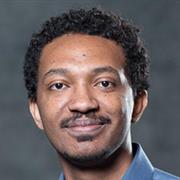Probability
Probability is the study of uncertainty or randomness and its consequences in the world around us. Probability plays a significant role in almost every branch of science, engineering, economics and medicine. It is also provides the basis for statistics. Moreover, the increasing complexity of deterministic processes has stimulated investigators both in and outside of mathematics to consider probabilistic approaches. "Probability provides a way of thinking about the world that is distinct from the modes of thought in other areas of mathematics. Based on its special intuition, probability generates tools and techniques that are relevant to other areas of pure mathematics." —2002 NSF report on Current and Emerging Research Opportunities in Probability.
Current broad areas of probabilistic research at Tufts include stochastic processes, stochastic analysis, stochastic differential equations, asymptotic properties of Markov processes plus connections with dynamical systems, mathematical ecology, and mathematical physics.
A recent major project of this group focused on the study of the long-term behavior of populations that live in stochastic environments. This was done by modelling the species as discrete or continuous time Markov processes (stochastic difference equations, stochastic differential equations, piecewise deterministic Markov processes), and then analyzing the long-term behavior (stationary distributions, quasistationary distributions, ergodicity) of these Markov processes.


